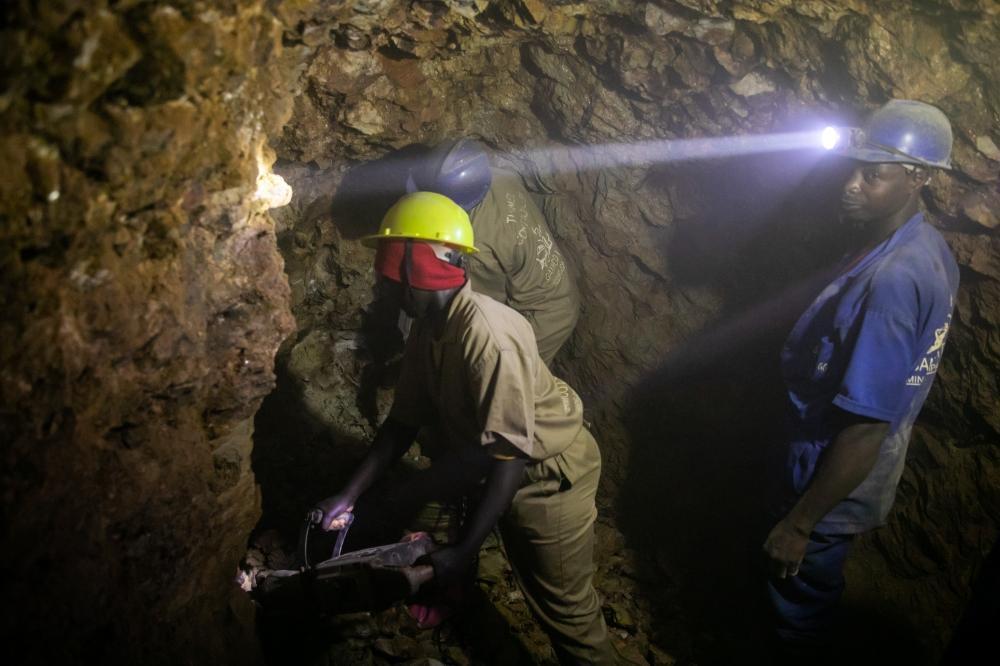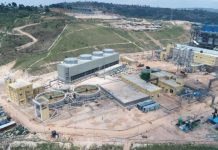Africa-Press – Rwanda. An agreement has been reached between mining companies and the miners’ union to introduce a minimum ‘living’ wage for mine workers.
The progress has been recognized as Rwanda marks Labour Day.
Given the low wages in the mining sector, a significant number of miners in Rwanda fall into the category of working poverty — a situation where an employed person struggles to afford basic needs.
The union has long advocated for a sector-specific ‘living wage policy’, citing the outdated minimum wage of Rwf100 per day, which has remained unchanged since 1974. However, the 51-year-old minimum wage is not necessarily based on when workers are paid today.
Nonetheless, workers say their wages are inadequate in meeting the rising cost of living.
The situation of mine workers has been improving over the years.
“Most miners are paid based on their output. Previously, if workers failed to find minerals during extraction, they received no pay. They were essentially over-exploited,” said André Mutsindashyaka, Executive Secretary of the Rwanda Extractive Industry Workers Union, in an interview with The New Times.
“Today, even if a mine worker does not find minerals after a day of extraction, he or she still receives a minimum living wage of at least Rwf1,500 per day. We are pleased with how employers in the mining sector, along with their association, have come to understand this issue.”
Mutsindashyaka noted that in some companies, workers are paid between RWF 2,000 and RWF 4,000 per day.
There are over 70,000 mine workers across the country.
“Negotiations are still ongoing. We are referring to it as a minimum living wage in the mining sector because the general minimum wage is announced by the Ministry of Labour,” he added.
The decision to introduce a minimum ‘living’ wage in the mining sector followed a study on the working and living conditions of miners, which revealed that 81 per cent of miners in Rwanda were paid based on production, that is, they were not paid if they had not found any minerals. The survey found that the remaining 19 per cent got a monthly salary.
The study also found that 92 per cent of medium-sized companies, 83 per cent of small companies, and 62 per cent of large companies paid their workers based on production.
Findings highlighted that 62 per cent of miners fell into the low-income bracket and lived in substandard conditions, often in inadequate housing.
Up to 78 per cent were employed as casual labourers, with most of them receiving production-based wages, predominantly in cash.
Mutsindashyaka said that a Collective Bargaining Agreement (CBA) between the union and employers is the most effective solution to address the conditions facing mine workers.
A CBA is a legally binding written contract between an employer and a union representing the employees. Through such an agreement, employers and unions can establish fair wages and acceptable working conditions.
By 2024, the miners’ union had signed eight CBAs with different mining companies.
These agreements enabled more than 5,000 workers to obtain written contracts, pension contributions, and long-term savings schemes. Women employees are also granted maternity leave.
Under these agreements, workers in participating companies receive a minimum living wage of at least RWF 3,000 per day, even if they do not find minerals during their work.
James Mudahunga, General Manager of Trinity Metals Group, said their company currently pays each mine worker up to Rwf4,000 per day.
“Our minimum living wage for mine workers exceeds RWF 4,000. As a result, our production has increased from 29 tonnes to 90 tonnes per month. More than 280 former illegal miners have been formally employed,” Mudahunga said.
The chair of Rwanda Mining Association, Jean Malic Kalima, said that the idea of a minimum wage is being considered, and there are ongoing discussions on how to better support workers in this sector, with another meeting planned on this topic.
For More News And Analysis About Rwanda Follow Africa-Press






